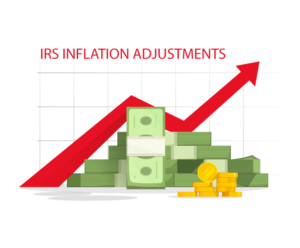Revisiting Your Will
[vc_row][vc_column][vc_column_text]
Revisiting Your Will
The importance of having a will cannot be overemphasized. It’s not simply the way that you direct the distribution of your financial and personal assets. Your will also enables you to designate an executor (or personal representative) who will act in your stead to meet your obligations and steer your assets through the probate process. If you have minor children, your will allows you to name a guardian who will see to their upbringing if you and your spouse should die with the task unfinished.
Of course, no will is final until its author dies, or is otherwise unable to change it. As circumstances change, provisions of an existing will can become hopelessly out-of-date. In any case, its wise to review your will from time to time to see whether adjustments may be in order. Nevertheless, certain categories of family and financial changes make a prompt will review a top priority.
Personal status
Naturally, when you marry, divorce or remarry, changes in the provisions of your will are called for. At the same time, you’ll want to review beneficiary designations in retirement plans and life insurance policies as well.
A move to a new state, or simply acquiring assets in a different state, means that at least some of your property will be subject to a different set of laws from those under which your will was drafted originally. Thus, it should be reviewed and revised by an adviser versed in the workings of the new state’s inheritance laws.
When you have named specific assets in your will, such as a block of XYZ Corp. stock or a vacation home, you’ll need to make revisions when you dispose of the named property. You also may wish to make adjustments when a given asset changes substantially in value.
Retirement, a time of sharp change in your sources of support, is also a time for will review to ensure that it is based on your current resources.
Children
As mentioned above, your will is the place to provide for the guardianship of your offspring. You’d probably want to name an alternative guardian as well, in case your first choice is unable or unwilling to serve.
If you’ll be leaving a substantial sum to provide for your children’s care, you may wish to set up a trust for that purpose in your will. That course may be advisable because in some states guardians are under strict court supervision as to the investment and expenditure of a child’s inheritance.
Other appropriate changes to your will would be in order when your children reach majority, marry, become disabled, or experience other major changes in their personal or financial situation. Certainly, the birth or adoption of a grandchild is an event worthy of consideration.
Your financial status
If your net worth has increased significantly since you wrote your current will, revisions undoubtedly will be in order. Your larger estate gives you more opportunities to provide for family, friends and favored charitable causes. So you’ll want to be certain that assets are managed and distributed as you think best.
Estates that grow in value naturally grow in complexity as well. As a result, you may need to add special instructions for dealing with a business interest, an art collection,
copyrights or other not-so-simple assets. Also, as your wealth expands, so does your exposure to gift and estate taxes. A simple everything-to-my-spouse will can bring on hundreds of thousands of dollars of needless estate taxes.
Currently, a person can transfer up to $1.5 million to others without incurring any gift tax or estate tax. (This amount is scheduled to rise dramatically over the next few years till reaching $3.5 million in 2009.) Assets left to a spouse pass tax-free without limit. Leaving everything to your spouse, however, can result in higher estate taxes at his or her death because the value of your “applicable exclusion amount” will be lost.
The full benefit of both spouses’ exclusions can be preserved by placing amounts equal to the currently allowed amount in trusts that provide the surviving spouse with lifetime income, yet remain sheltered from tax at his or her death.
Legal developments
Federal and state tax laws are subject to change at any time. Thus it’s important for you and your financial advisers to stay on top of these developments and make adjustments to your estate plans as required.
You will note that these arrangements rapidly become too complex to be placed in the hands of an untrained individual. The executor or personal representative named in your will needs to have the time and know-how to protect estate assets, collect debts, settle claims, manage investments, keep records and minimize tax exposure. To avoid burdening a family member or friend, you might choose to designate us to handle the settlement of your estate and provide long-term management as trustee. We’d also be happy to act as coexecutor with a family member to ease his or her burden.[/vc_column_text][/vc_column][/vc_row]
Tax Tips for Entrepreneurs
If you’re looking to start a new company in the coming year then you certainly have a lot on your mind, not the least of which is how you will get started, what will you do to market your company and what are your chances of achieving success. The concerns and issues are endless…
IRS Announces New Inflation Adjustments for 2017
While the 2016 tax year is still not quite over, the IRS has already announced some important inflation adjustments for the 2017 tax year, which taxpayers will file for in 2018. While you might be more worried about your upcoming tax return, there are some important changes to know about. However, that being said,…
IRS Changes Deadlines for 1099 Forms
It’s almost January. Are you ready for taxes? Of course, Form 1099s are an important part of any tax season, and this coming year will be no different. As a taxpayer, if you receive any kind of Form 1099 don’t ignore it. The IRS will get the same form and you will be held…
Which Stocks Stand to Gain From Trump Victory?
Which Stocks Stand to Gain From Trump Victory? News of Donald Trump’s victory on November 8th sent shockwaves around the world and initially sent the stock market down. However, the market has since stabilized and reports of a major decline have not panned out. Of course, the stock market is in constant flux and things…




